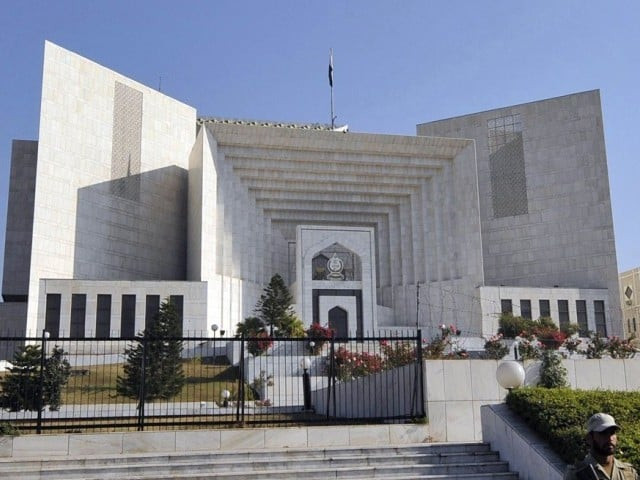Hakim Saeed case: Evidence was fabricated says SC
Order says that different reports available on record show that 3 accused in these appeals have made themselves scarce

The apex court suggested that the investigating agency resorted to fabricating evidence before sending the case to the trial court. PHOTO: AFP/FILE
With a six-page judgment regarding the acquittal of three Muttahida Qaumi Movement (MQM) workers implicated in the murder of former governor of Sindh Hakim Muhammad Saeed, the Supreme Court on Saturday observed that “all was not well” with the prosecution’s case.
The apex court suggested that the investigating agency resorted to fabricating evidence before sending the case to the trial court.
“Upon our own independent evaluation of the evidence, we have not been able to reach a conclusion different from that reached by the High Court of Sindh. These appeals are, therefore, dismissed,” a three-judge bench said in its order over the appeals filed by the Sindh government against SHC’s May 31, 2001 judgment.
The bench was headed by Justice Asif Saeed Khosa and comprised Justice Sarmad Jalal Osmany and Justice Mushir Alam.
The order also stated that one of the accused persons tried in this case had advanced a plea of alibi as at the time of the alleged occurrence he was confined in a jail in connection with some criminal case and his plea in that regard was supported by some official record.
“His false implication in this case clearly showed that all is not well with the case of the prosecution and that a lot of fabrication had been resorted to by the investigating agency before sending the case to the learned trial court for holding a trial,” read the judgment.
The FIR stated that Hakim Saeed and two others were murdered and three others injured on October 17, 1998 as a result of firing by unidentified culprits. No culprit was nominated, nor was any description provided.
During the course of investigation, three persons namely Muhammad Amirullah, Imran Pasha and Muhammad Shakir had been declared as accused.
The order said that different reports available on record show that the three accused in these appeals have made themselves scarce and that numerous efforts made by different agencies to serve notices of appeals have remained abortive.
Four prosecution witnesses Hakim Manzoor Ali, complainant Muhammad Sarwar Baig, Wahid Bukhsh and Muhammad Siddique had provided the ocular account of the incident.
“Although the complainant had claimed that he had seen the culprits firing at the complainant party yet he had conceded before the trial court that he could not say as to whether the culprits had fired at the complainant party from inside a vehicle or while standing outside any vehicle or while sitting or lying down. He had never described any of the culprits before the police,” said the judgment.
“Muhammad Siddique was the bodyguard of deceased Hakim Muhammad Saeed but he had categorically stated before the trial court that he had not seen the culprits firing at the complainant party.”
The judgment also stated that the prosecution had also presented another witness Moula Bukhsh before the trial court but he had surfaced in this case after 25 days of the alleged occurrence and his statement was contradicted by none other than the investigating officer himself.
Published in The Express Tribune, May 4th, 2014.



















COMMENTS
Comments are moderated and generally will be posted if they are on-topic and not abusive.
For more information, please see our Comments FAQ